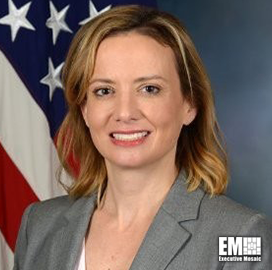Kristen Alexander announced in a LinkedIn post published Thursday that she has been named chief learning and artificial intelligence officer and director of operational test and evaluation for the Office of the Secretary of Defense.
Before stepping into this role, Alexander served in the same office as technical advisor to the deputy director of operational test and evaluation for land and expeditionary warfare.
Her specialties include operations research, ground combat vehicles, unmanned aerial vehicles, communications, mission command, reliability and growth and cybersecurity, as listed on her LinkedIn profile.
Alexander, who holds a doctorate degree in chemical engineering, spent nearly 16 years at the Institute for Defense Analyses as a research staff member before joining the Department of Defense in 2015.





